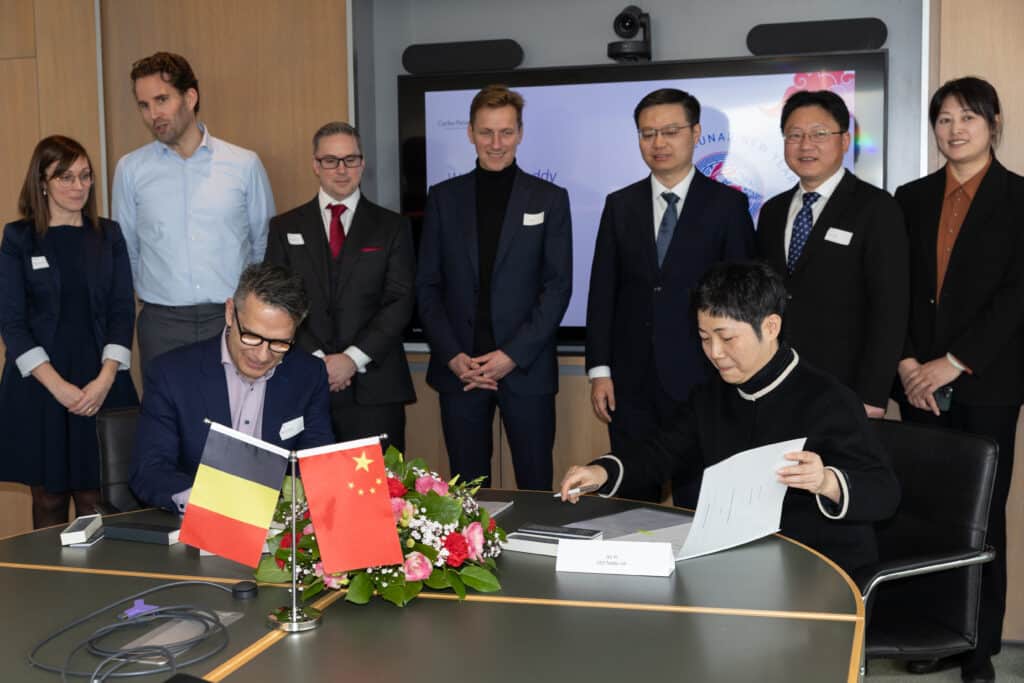In a recent interview with Pharmaceutical Technologies, Piet Jamaels, COO at Cerba Research, talks about his plans to rewire the lab services firm to optimise for a new world of digital, data and AI in clinical trials management.
The clinical trials landscape is evolving more rapidly than ever before. The COVID-19 pandemic and geopolitical instability have put new pressures on the pharmaceutical supply chain. Meanwhile, decentralisation and the Big Data revolution are transforming the way researchers run clinical trials, and previously untapped geographies are emerging as new hubs for future research. In a dynamic environment, companies that take a future-facing outlook, and can offer their clients the flexibility to do the same, will lead the market.
For specialty and central laboratory services provider Cerba Research, a new chief operating officer (COO) has a bold and ambitious vision for the firm, which operates a global network of laboratories in the Americas, Europe, Africa and the Asia-Pacific (APAC) regions. This involves embracing technological innovation while remaining true to the values that bring Cerba Research colleagues to work every day.
The digital revolution
Automation, advanced analytics and technologies like machine learning and artificial intelligence are driving digital transformation across industries. Clinical trials management is no exception.
The Covid-19 pandemic catalyzed an enormous upswing in the adoption of innovations including telemedicine, wearables and remote patient monitoring. According to GlobalData analysis, the number of clinical trials with a decentralized and virtual component increased by 50% between 2020 and 2021, and this trend is here to stay. Out of all clinical trials estimated to be completed in 2023, at least 5% have a decentralized component. Trial decentralization gives sponsors the opportunity to reach previously remote populations, increase participant engagement and accelerate trial completion. For participants, it offers the chance to participate in a trial from the convenience of home, reducing potentially costly and uncomfortable visits to the trial site.
For Jamaels, whose track record in managing complex operations and delivering process improvements spans GSK Vaccines and one of the world’s largest companies, GE, the technological shift is an exciting development: “I’m passionate about the digital transformation that our industry is going through,” he says. “I’m working to see how we can help both the leadership team and the whole organization in playing an active part of that.”
Translating Big Data into results
Big Data is another cornerstone of the digital revolution. Using new technologies, like AI, large volumes of data can be analyzed to generate powerful insights. Clinical trials generate enormous amounts of data from sources including biomarkers, electronic health records, patient reports and wearables and medical devices. Companies that can harness and analyze this data will yield powerful results, including more sophisticated patient recruitment, which helps to improve trial specificity and reduce trial dropout rates.
One of the major strategic projects Jamaels is overseeing at Cerba will eventually bring together all key business processes into a unified and holistic enterprise-wide system. It will allow stakeholders to get full visibility into all proposals and contracts, project planning and schedules, order new kits and quickly assess the status of kits and generally increase efficiencies in clinical trial operations. According to Jamaels, when at full capability, it will leverage the power of digital technology to transform the entire value chain.
“To be relevant within a digital-first world we need to make sure our digital presence is at least up-to-date with established practices but ideally we always want to be ahead of the curve. The portal will be the beginning of a one-stop-shop for our stakeholders, with an easy-to-use interface that will help our stakeholders in their collaboration with us,” Jamaels says.
“It will make sure that we can become best-in-class when it comes to providing lab services across all our divisions. It will be the key to positioning us as leaders in a future where decentralized trials makes up at least 50% or more of all clinical trials and will allow us to fully optimize the volume of healthcare data we collect.”
Adapt and thrive
To capitalize on the potential of emerging technologies for clinical trials, structural organizational changes are required to create new ways of working for future success. But making these key changes can be challenging. In the medical field, operators are typically conservative and risk-averse – and the collection, analysis and storage of more data creates new concerns around cybersecurity and data protection.
“But we can’t miss the boat on this. We have to prepare for a world of decentralized trials and to do that, we need to change. We need a new mindset,” says Jamaels. “The good news is that a lot of companies in different sectors are on this journey too and there are a lot of learnings that we can lean on as we move into the digital future.”
Jamaels brings expertise from diverse environments to the challenge of change management at Cerba Research. During his time at General Electric Corporate, he managed the transition of more than 120 HR processes from 12 different business units into a single shared services centre. As head of performance, process and risk management for research and development at GSK Vaccines, Jamaels was in charge of R&D covering clinical, medical, regulatory and technical areas.
Growth in Africa
One new acquisition has recently transformed the field of opportunity for Cerba Research. The purchase of Viroclinics-DDL, an established global specialist virology and vaccine development contract research organisation, gives Cerba Research the opportunity to enhance solutions across therapeutic areas, explore new geographies and build best-in-class logistics services while reducing risks for customers.
The shared expertise and resources enable Cerba Research to broaden its services within cell and gene therapy, infectious disease, and oncology and access new markets in North America, Asia, and Africa, the sites of some of the most exciting growth in clinical trials. GlobalData analysis shows that Asia-Pacific is one of the fastest-growing geographies for clinical research, accounting for more than 50% of global trials in 2022. IQVIA analysis of Citeline TrialTrove database in 2022 shows that clinical trial activity in Africa doubled between 2012 and 2022, but still only represents 3.9% of the global trial landscape. High patient concentration and growing populations in these geographies mean there is plenty of room for further growth.
Jamaels explains that upscaling is a matter of taking smart decisions to make the most of opportunities: “We have a unique position in Africa already and we will continue to expand there. We will leverage what we have and where we have the infrastructure set up,” he says. “When it comes to expanding in new areas where we don’t have any infrastructure, we need to make sure that we are set up for success and we evaluate the risks.”
Guiding principles
When Jamaels reflects on what he is most looking forward to as the new COO of Cerba Research, the company’s people are at the front of his mind.
“I get a lot of energy from having people work together,” he explains. “When you have teams talking to each other and understanding each other’s requirements, then you can improve processes and raise the quality of the work,” Jamaels recently brought together members of the business development team and new starters face-to-face for the first time, to brainstorm how to remain competitive and price smarter. “You could just see the energy in the room and the ideas kept flowing,” he says.
Empowered colleagues and a spirit of continuous improvement are the pillars of success for businesses operating in today’s clinical trials market. “The company has been growing very fast, and there’s a lot of passion from our people,” says Jamaels. “A big focus area is bringing in people and developing people in the organization at all levels. The aim is to give them the right coaching and training to become future leaders.”
In a market like pharmaceuticals, success is measured in more than bottom-line figures. Behind every business goal is a patient population to serve, and companies looking to navigate an exciting, dynamic future should continue to prioritize the values that drive them.
“My vision is that we install a true quality culture, a culture where we do things right first time. Behind every sample, there’s a patient, so patient safety is an integral part of the quality culture,” says Jamaels. “We come to work because we want to make an impact on people’s lives.”
Reach out to our experts and discover how we can help you transform research and advance health








